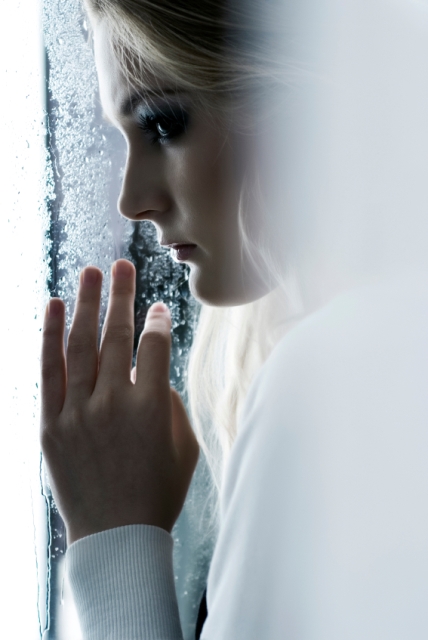I was stunned and saddened by the news that New Zealand born TV host and former model, Charlotte Dawson, took her life over the weekend. She was well known for TV shows like Australia’s Next Top Model and had dealt with depression in the past. Beautiful Charlotte was my good friend Nick’s dear friend, and I had the pleasure of meeting this dynamic woman. Though we weren’t close, I share this tragic loss with so many around the globe. This is a reminder that we must be vigilant because suicide and suicidal ideations haunt those we least expect. People we know and admire may silently struggle. To understand suicide crisis from an attempter’s point of view, please read Julia’s story; she was able to conquer her enemy. Today, this healthy woman wants to help others do the same. There is hope and help.
Julia’s Journey: A Glimpse into Suicide Crisis
It’s that time of year again, when the weather surprises us with highs and lows, so vastly different that all of the seasons are upon us in a single week. It’s that time of year, when our sleep patterns struggle to regain composure, and if we could get away with it, we might choose to sleep all day if we could. In fact, we might go through the motions of our daily routines and hope that nobody notices the subtle changes. We might even eat a little more or less depending on how our energy affects our appetites, and we might become so self-absorbed in our own emotions that we avoid seeing friends or family altogether. These are all very normal feelings, and according to Dr. John M. Grohol, of Psych Central, these are also signs of depression.
What separates melancholy from depression and depression from suicidal tendencies? What separates attempters from survivors and survivors from victors? And, how are we supposed to learn more about suicide without hearing from those who have been through the emotional labyrinth of suicidal crisis and have lived to tell us about it? In America, suicide claims the lives of 30,000 people each year, but more than 800,000 attempt it and even more do so without reporting it. Julia* is one such attempter, and after years of searching for that magic pill to save her, and after two failed attempts at suicide, she finally relinquished her attempt to control depression and accepted the belief that something bigger was at work. And that was the first day of the rest of her life. Learn more about suicide and Julia’s journey in our exclusive interview.
*Name has been changed to protect her identity.
MB. Suicide and suicide crisis prevention are subjects that people shy away from. If hearing someone’s story can save just one life, wouldn’t it be worth it?
J. That’s the only reason why I’ve agreed to share my story.
MB. When did you start feeling suicidal?
J. My whole life I’ve had self-harming behaviors. I’m a recovering drug addict and alcoholic, and I used to cut myself as a teenager. Truth be told, I did this up until a couple of months ago. There wasn’t a shift for me. My whole life was a suicidal crisis. I was either about to pitch myself over the side of a building or I was walking on air.
MB. Would you say that you felt this way as long as you can remember?
J. I struggled with depression since I was diagnosed in high school, and as a result, anti-depressants followed me ever since. I went through depressions so deep that I didn’t even have the energy to think about committing suicide. I would be in bed wanting to die, but didn’t have the cognitive ability to formulate a plan. That’s why they say that people commit suicide when they start to feel better, because at the bottom of the bottom, they don’t have the commitment necessary to act on it. I’ve even read that some people think anti-depressants cause suicidal thoughts, because they make people feel well enough to kill themselves. When I was in the depths of my depression, I couldn’t even take a shower.
MB. Were you diagnosed with anything else?
J. Only clinical depression, but I hadn’t been off anti-depressants other than for my pregnancies.
MB. So, when you were bedridden with depression, you were on anti-depressants?
J. That was usually when I was transitioning to another medication. My initial diagnoses of clinical depression followed me around for twenty years. I really don’t know how much of it was real. Every time I was pregnant, I would go off my anti-depressants, have my child, and then go right back on them again.
Actually four months ago, I stopped taking them, because I wanted to get a baseline. I was lost in a haze of doctors for the last twenty years, and I self-medicated with alcohol and drugs in addition to the anti-depressants and other anti-psychotics. Maybe if I had told someone the truth—that I was drinking like a fish—I wouldn’t have been so crazy all the time.
MB. Did you have any healthy relationships in your life?
J. I had no desire to surround myself with healthy people, but if I didn’t have my ex-husband and kids, I would’ve died a long time ago from an overdose or tripping and falling in the street and being hit by a truck. The three of them tethered me to reality. When I first got married and the children were really young, I was happy, but I went off the rails when they were school age.
MB. How long have you self-medicated?
J. I started drinking and using drugs when I was 14 and started anti-depressants and anti-anxiety medication when I was 17. Essentially, I was a kid with too much money and not enough supervision.
MB. Who was the first adult to realize you had a problem?
J. I had a break down my senior year of high school and I couldn’t stop crying. So the school office called my mom. My doctor put me on Prozac, and I went back to school. Instead of going on to college, I misbehaved for four years and landed in rehab. Then, I kind of went from boyfriend to boyfriend until I met my husband and had a relatively normal relationship, until 2008. That’s when my substance abuse got out of control again. And like most of my bad spur of the moment decisions, I asked my husband for a divorce.
MB. When was the first suicide attempt?
J. After I asked my husband for a divorce, we couldn’t afford to move out of the house. So we lived together until we sold it. After about 6 months, while my mom was visiting and the children were downstairs, I took a bottle of Xanax and Klonopin because I didn’t want to deal with things anymore.
MB. Was it a cry for help or were you trying to kill yourself?
J. On one hand, I think it was a cry for help because the phone rang about ten minutes after I took them. I remembered thinking that if I answered the phone, then I probably wouldn’t die. I answered and it was my boyfriend and he could tell I was messed up.
B. Did you write a suicide note?
J. No, but before my second attempt, I did. I think that I still have that note, but I really don’t want my children to find it. Looking back, I think that I couldn’t live in that house anymore. The only way out seemed to do what I did, but clearly there was some suicidal ideation. The next attempt, however, was much more hopeless than the first.
MB. How so?
J. I felt much more like I wanted to die. I wanted to sleep for a long time, and I didn’t care what happened. I was in pain, and so much so that I couldn’t even breathe anymore. I took Klonopin, Xanax, some pain pills and two bottles of Tylenol PM. I got really sick and wound up in the lobby of my building, not sure where I thought I was going. I still can’t believe that I didn’t manage to kill myself with all those drugs.
MB. Besides the two overdoses, were there other ways you tried to take your life?
J. The two years between the overdoses, I never wore my seatbelt in my car…ever…ever…ever. I would just buckle the seatbelt and sit on top of it because I really hoped that I would die in an accident. Also, with drugs, I figured that if I overdosed, my children would think that it was an accident. I was so unwell.
MB. It sounds like this is something that never goes away. How do you live with it everyday?
J. I look back on my years of anti-depressants and therapy. I was always searching for a diagnosis or a magic pill to make me feel better. Then, I’d try filling this black hole of depression with love, alcohol, sex, people, manipulation, drama, food, shopping, and money. Somehow, in hitting the bottom, I got to a place where I found self-worth, and, I feel like I have faith in something that’s bigger than myself instead of trying to control things.
MB. Was there an epiphany after the second attempt?
J. The second suicide attempt was two months before I went into detox. And then after that, I blacked out in the movie theater with my daughter and she had to find a way to get me home. My ex-husband finally threatened to take the kids away from me, and I realized that if I lost the kids I’d have nothing. It would be over.
MB. Do the detox programs really help? Is that how you started to turn everything around?
J. It has taken me two years. First, I went to detox for 10 days. Then I went to a treatment center for two and a half months. I was sober, but I was crazier than ever. I knew that I didn’t want to drink or use drugs, but I was overeating and manipulating people. Still, it was the beginning of getting better. For me, it’s been about being grateful and humble and finding peace in my life. I eliminated most of the self-destructive stuff. I know that drugs or alcohol will lead me right back to where I was two years ago.
I don’t think I can have a champagne cocktail at the Plaza anymore. That’s just not me! With alcohol, my reality is a dark bedroom with wine and pills. My children are huge in my recovery. I really want to be the mother they deserve. As it is, they know far too much about me; they know when mommy drinks she can’t stop.
MB. What advice would you give to a person feeling depressed and suicidal?
J. Feelings aren’t facts. Feeling hopeless doesn’t mean that it is. You can ride it out. Things will change. If you can hold on, you can make it through to the other side.
“Toni, what you’re doing is a great thing, especially for young people. I hope that something here speaks to them!”
We’re so grateful for Julia sharing her life’s journey and how she overcame this dark place of drug abuse and depression. I sincerely hope that it will give people who are facing thoughts of suicide, the courage to get help. If you or someone you know needs help immediately, call the Suicide and Crisis Center of North Texas at 214.828.1000.






